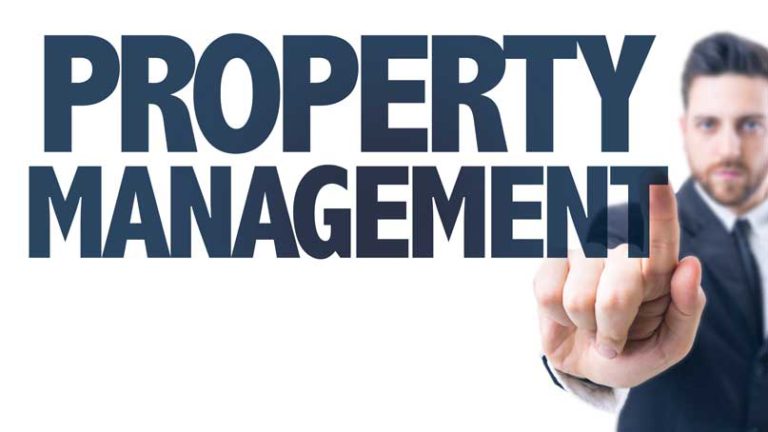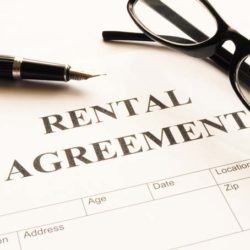In a previous post, we wrote about why we are considering selling some of our rental portfolio, specifically our properties in Indianapolis. One of the alternatives to selling outright would be to change property managers.
While we wouldn’t realize cash from a sale if we continued to hold these properties (one of our key reasons for selling is to deploy the cash from a sale into other investments), switching out property managers may solve one of our main concerns – that the properties require more of our attention than we are willing and able to give them.
With more responsive property management, we could hand off some of the activities that we currently take on. With more effective property management, we should have less turnover drama, reducing work for both us and the property manager.
Changing property managers turned around our Asheville investments

We were at a similar crossroads in Asheville a few years ago, where weak property management meant we had to get more involved in the day-to-day, including a mold remediation issue.
However, since replacing our original property management company with an excellent property management company, we have streamlined maintenance calls, practically eliminated turnover costs, and our Asheville properties are the most solid rentals in our portfolio.
Unfortunately, by the time we switched property managers in Asheville, we had already sold one of our original three Asheville purchases, which was a rookie mistake (it was our first rental property).
This time, in case we don’t sell, we are looking at alternative property management companies.
Questions to ask property managers

How do you best research a property manager for your rental property? Ideally you start with referrals, and that’s how we built up the initial list of prospects.
Then you ask a bunch of questions to help you understand how they operate, what their values are, and to what extent the way they operate aligns with your own interests.
You want to find a partner who manages similar types of properties to the ones you own. For instance, in Indianapolis, our rents are between $800 and $900 per month. We were really impressed with a particular company, but won’t go with them because their average rent is $1100 per month – so their bread and butter does NOT match up with the kinds of properties we own.
As you can see below, there are a LOT of potential questions to ask about various parts of the business. Asking for a copy of their property management agreement up front will help to fill in some of the details, and then in your phone call you can hone in on particular areas where you need more information.
Here are the questions we ask:
 About the business
About the business
- How old is your company
- How many people do you have on staff and what are their roles
About their properties
- What type of properties do you manage
- How many properties do you manage
- What is your average rental amount
- What are your vacancy rates (you can also go to their website and count up the rental listings)
- What is your typical lease length? Why
- What is the estimated rent for [describe your property]
About their fees
- Set up or onboarding fee
- Tenant placement fee
- Monthly management fee
- Monthly management fee when unit is vacant
- Fee to renew tenant each year
- Fee for periodic inspections
About tenant screening
- Do you handle leasing in-house
- How do you find tenants
- How do you screen tenants
- Do you call past landlords? How many
- Does the owner have any say in tenant selected
About collecting rent
- When is rent late
- How do you try to collect late rent
- What is your late fee and do you share late fee with owner
- When do you start the eviction process
- What is the cost and timeframe for evictions
- How many evictions per year (or per month if you deal with lower end) do you have
About maintenance
- Do you have maintenance in-house or use outside contractors and do you add a fee to work done by outside contractors
- What major maintenance issue (e.g., mold) have you managed
- How do you communicate maintenance requests with the owner
- What is the maximum maintenance repair you will handle before calling the owner
About transacting with owner
- How do you communicate with the owner
- What online system do you use
- Do you direct deposit or send a physical check
- What day of the month do you release payment
Finally, you should ask for references. Since companies will generally only provide references that are happy with their services, and property owners who have good tenants who pay every month are generally happy, you ideally want to find a reference that has either been through an eviction or a complicated repair issue. Navigating through those situations is when you find out if your property manager is any good.
If you enter into an agreement with a new property management company, pay attention to the cancellation terms. You want to avoid a contract that locks you into a full year. Ideally you would be able to cancel with 30 days notice if you end up unhappy with their services.
======
What is interesting about the Asheville property management company who is doing a great job for us is that they do not have an online portal, and they send us a physical check each month!
While this might seem backwards and old fashioned, perhaps it works because it keeps their costs down, or because they have efficient streamlined procedures. In the end, we don’t care about the technology or bells and whistles if the property manager does a great job.
======
We’ve fired a few property managers over the years – how many have you been through in your investment history and did you eventually find one that you are happy with?
Also, what questions did we miss?


 We are Scott and Caroline, 50-somethings who spent the first 20+ years of our adult lives in New York City, working traditional careers and raising 2 kids. We left full-time work in our mid-40’s for location-independent, part-time consulting projects and real estate investing, in order to create a more flexible and travel-centric lifestyle.
We are Scott and Caroline, 50-somethings who spent the first 20+ years of our adult lives in New York City, working traditional careers and raising 2 kids. We left full-time work in our mid-40’s for location-independent, part-time consulting projects and real estate investing, in order to create a more flexible and travel-centric lifestyle.  Financial independence and early retirement is not something we originally focused on, but over time realized it was possible. Our free report,
Financial independence and early retirement is not something we originally focused on, but over time realized it was possible. Our free report, 








I think of it like a job interview. What questions going in would I like to know about them. I’m glad you laid out a framework and I’m sure there would be follow up questions to ask as well.
Agree, that’s a great way to think of it – thanks!